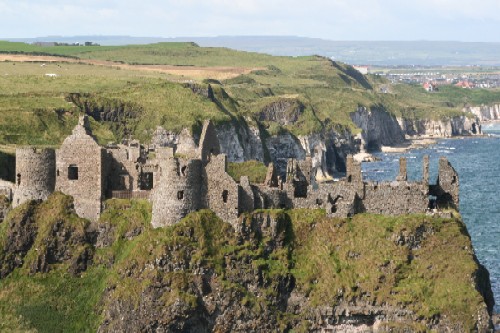
(a4) A warning to priest, people and king.
(Ch.5: 1-7).
Verse 1.
The king, priests and people of Isreal are warned against living in sin and continually committing evil.The picture that is painted here by Hosea is one of a people who are like wild animals who have been hunted and trapped by wicket and evil religious leaders.
The word "pah" which basically means to snore is used here, also the word "reset" is used for the "hunting net" this in turn is symbolic of the priests method of trapping them.
Mizpah and Tabor were probably places well known because they were good for hunting. (Judges 10:17,11:29).
Verse 2.
"Deep in slaughter' is the main thought in this verse. The children of Isreal had become a hunted people, but God would judge them who acted against Isreal.
Verse 3.
In this verse Hosea speaks specifically to the tribe of Ephraim about their sin, fornication would seem to have blighted the tribe. Like a disease it was spreading through the other tribes of Isreal and Ephraim were singularily responsible.
Chapter 4:10-12, explains that Ephraim and especially Bethel was a center for cult prostitution, it is probably fair to suggest that the immorality that Ephraim and the other tribes of Isreal were experiencing stemmed from their departure from the Truth of God's word to worship of false idols.
Verse 4.
"Deeds", Isreal loved spiritual and physical prostitution and because of that they could no longer acknowledge the Lordship of God on their lives nor come near to Him.
Verse 5.
Arrogance would seem to be the outcome of Israel's sin toward God and it would seem that Ephraim were the worst offenders.
Verse 6.
This verse simply suggests that although the nature of the Isrealities was always evil, they still found time to bring their animals to the alter for sacrifice, but of course there was no true faith in their sacrificing, nor was there any inward repentance, and because of that there was no outward change in their conduct and so God would be forced to punish them.(1 Sam.15:22-23,Hosea 6:6).
Verse 7.
"Unfaithful" behind this word their is the idea of "deceitfulness and treachary",(bagad). The idea of an unfathful wife is suggested here.(Jer.3:20,Mal.2:14).The nation was responsible for many illegitimate children, they had lost their fear of God.The (hodes)or new moon festival refers to the monthly sacrifices that were made to their gods but the result will be ruin and not blessing.
(a5) A warning to Ephraim and Judah.(ch.5:8-15).
Verse 8.
Hosea warns Judah and Ephraim (Israel) to be watchful especially at the time of (Sopar) trumpet.This was a warning to be ready for battle. Gilbeah and Ramah were two strategic cities situated on the northern boundary of Judah, these places needed to be secured. Judah also needed to take note of Israel`s bad infulence on her daily life-style.
Verse 9.
The tribe of Benjamin was called by the prophet Hosea to be careful because soon the land of Israel would be laid waiste. When that happened Judah had to realise that they were open to similar judgement from the northern invader who has come to be known as Assayria.
Verse 10.
Hosea gives clear reasons as to why Judah must be punished, it would seem that it's leaders were like those "who moved the boundary stones." In short the leadership of Israel manipulated and moved boundaries for self gain, they were no better than thieves.
In Deut.27;17 this was strickly forbidden, because those boundaries were established by God Himself.The leadership had also changed the spiritual boundaries between right and wrong, true and false and between the true God and false idols.
Verse 11.
(`asuq resus) which means to oppress or trample down. It would seem from this verse that Ephraim were intent on tramping down the word of God and following after idols.The writter uses these two Hebrew words to explain what happens when a nation sets out to disobey God. Israel or Ephraim had become Idol orientated and because of that they would eventually destroy themselves.
Verse 12-13.
The idea of being eaten by "moths" gives the impression that the nation was decaying because of their problems and troubles caused by idolatry. As soon as Ephraim saw their desperate needs they immediately sought help from their gods and from other heathen nations as opposed to seeking Yahweh. This only reflected their unfaithfulness.The Assayrian king at that time could not help them in their problems, in fact he added to them.(2 kings 15:1920.)
Verse 14.
The might of the Assyrians could not hinder God from bringing down His judgements on Judah and Israel.God would be seen as a "lion", His judgements and love would be irresistable. From the history of this period His judgement started slowly and built up until Judah-Isreal were completely devastated.
Verse 15.
After God's judgement had been meeted out to Israel, He would then withdraw and wait for Israel to repent from their sinfulness and seek "His face" again so that they may be relieved from their misery.